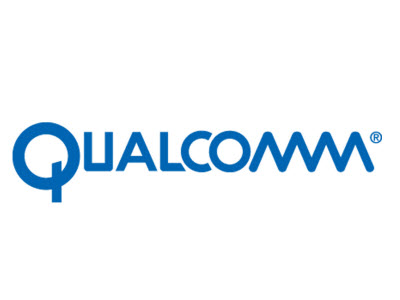Qualcomm Forced To Refund BlackBerry $815M In Royalty Payments
BlackBerry was awarded $814.9 million following a dispute with Qualcomm over patent royalties.
How The Dispute Started
Back in 2010, BlackBerry signed a license agreement with Qualcomm, in which it paid royalties for all the Snapdragon-based smartphones it was expecting to sell by 2015.
As we know, BlackBerry hasn’t done so well in the smartphone market over the past few years, and in fact it even got out of the market last year. The company entered arbitration with Qualcomm last year to recuperate some of the money it paid for licenses that it never used.
Even though the original deal was supposed to be non-refundable, per the contract between the two companies, the arbitrator seems to have agreed with BlackBerry that it doesn’t make sense to pay royalties for units it never sold. As such, Qualcomm was ordered to refund BlackBerry a part of the original sum. Qualcomm said in a statement that it disagrees with the decision, but it’s binding, so it will have to refund BlackBerry.
Qualcomm’s Patent Troubles
Over the past several years, Qualcomm has drawn the attention of multiple regulators who accused Qualcomm of abusing its market position to overcharge its customers and take out competitors.
Qualcomm was recently fined over $850 million by the Korean Fair Trade Commission (KFTC). Back in 2015, it also had to pay a $975 million fine to the Chinese government over similar accusations. The European Commission started its own ongoing antitrust investigation against the company in the same year.
This year, the U.S. Federal Trade Commission (FTC) also charged Qualcomm with using anti-competitive tactics to monopolize the market. Apple sued the modem maker for $1 billion, too, arguing that it overcharged it for basic smartphone technology.
Get Tom's Hardware's best news and in-depth reviews, straight to your inbox.
Qualcomm recently launched a counter-suit against Apple, but so far it looks like all the evidence is piling up against Qualcomm as being the aggressor in the market. It was also recently revealed from the KFTC’s case against Qualcomm that the company blocked Samsung from selling its own Exynos chips to other smartphone manufacturers for 25 years. This may explain why Samsung never decided to sell its highly competitive chip to other companies, the same way it sells its Super AMOLED displays or builds competitors' chips in its manufacturing facilities.
Updated, 4/12/2017, 11:55pm PT: Qualcomm denied that it has been blocking Samsung from selling its own chips to other smartphone manufacturers:
"Qualcomm has never stood in the way of Samsung selling chips to third parties, and nothing in our agreements has ever prevented Samsung from doing so. Any statement to the contrary is false," said a company representative.
Lucian Armasu is a Contributing Writer for Tom's Hardware US. He covers software news and the issues surrounding privacy and security.
-
yamahahornist Qualcomm shouldn't of had to pay back Blackberry for "unsold" devices.. What the heck is that crap! When a 7-11 buys donuts and they don't sell they throw them away and move on; they don't get a refund for what they didn't sell.Reply -
10tacle ^^I know, but the arbitration challenge was binding between the two. Everyone has a right to request an arbitration hearing (people, companies) in a legal challenge or contract dispute.Reply
I think both companies are losers here. Blackberry for being a big fat fail and not seeing where the future of the smart phone was going (clue: nobody cared about small nearly unusable pullout or integrated keyboards after 2010). Qualcomm for being pompous arrogant jerks. I interviewed with them once many years ago and didn't like the attitude of the management. Their noses were high in the air. -
10tacle Reply19554309 said:Qualcomm the new Intel...
Yes because AMD never creates new competitive processors, right?:pfff:
-
shrapnel_indie .... I wonder if this is why the US Markets pretty much only seen QualComm CPUs in Samsung Phones... could they have been locked by QualComm?Reply
Did the arbitrator null and void the contract between Blackberry and Qualcomm, or did they decide to piece-meal what they may have personally liked or disliked about the contract? -
TJ Hooker Reply
This doesn't sound like Qualcomm is being forced to buy back unused chips. It says they're being forced to pay back royalties, which makes it sound like Blackberry paid Qualcomm an up front amount of money to use their tech, based on how many phones they expected to sell based on said tech. Then they ended up selling much less, and they're getting back the money that they paid as royalties for phones they never ended up selling.19554327 said:Qualcomm shouldn't of had to pay back Blackberry for "unsold" devices.. What the heck is that crap! When a 7-11 buys donuts and they don't sell they throw them away and move on; they don't get a refund for what they didn't sell. -
toadhammer I forget the specifics, but I believe Qualcomm owns the patent on CDMA. The ability for users to share bandwidth on the same frequencies. That means you cannot do CDMA, GSM, or LTE unless you are using their chips. Basic monopoly in the modern world. Not a question of whether you use their chips or not. If you're screwed into using their modems, not much worse to commit to their CPUs as well.Reply -
bit_user Reply
I'm pretty sure @jama was referring to the way Intel has long abused its market position. I'm not aware of AMD ever engaging in the same sorts of anti-competitive tactics, but perhaps that's only because they never had a market position quite strong enough.19554639 said:19554309 said:Qualcomm the new Intel...
Yes because AMD never creates new competitive processors, right?:pfff: -
R_8___ How blackberry blew itReply
https://beta.theglobeandmail.com/report-on-business/the-inside-story-of-why-blackberry-is-failing/article14563602/?ref=http://www.theglobeandmail.com&service=mobile
BlackBerry sued by over 300 employees
http://www.cbc.ca/beta/news/canada/ottawa/blackberry-employees-class-action-lawsuit-1.3986344
How Canadian Police Intercept and Read Encrypted BlackBerry Messages
https://motherboard.vice.com/en_us/article/rcmp-blackberry-project-clemenza-global-encryption-key-canada
